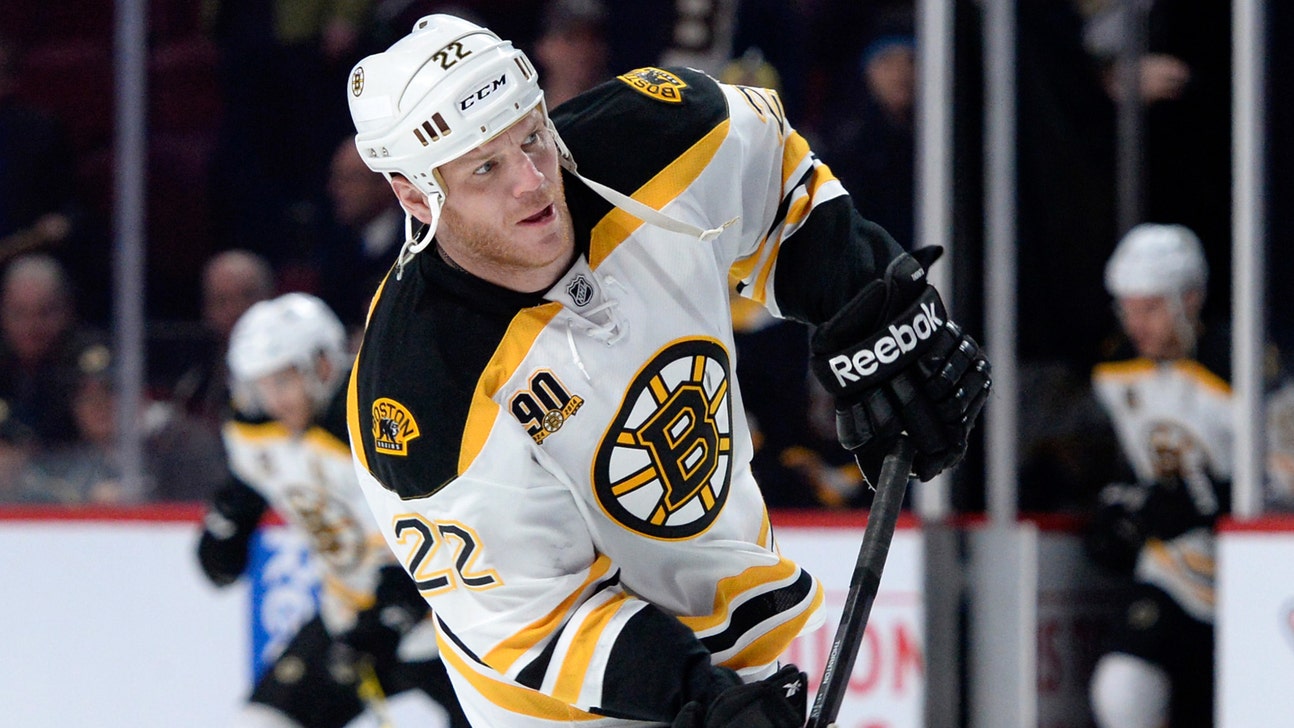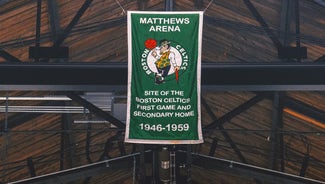
As enforcers struggle to find work, Shawn Thornton soldiers on with Panthers

The Florida Panthers have always had an affinity for the five-minute major.
From Paul Laus to Peter Worrell, the team has never shied away from dressing players known more for racking up penalty minutes than points. With this in mind, it should have come as little surprise to fans when general manager Dale Tallon made it a priority this offseason to recruit one of the NHL's most notorious enforcers, former Boston Bruins forward Shawn Thornton.
"He can play it any way you want," Tallon said after inking Thornton to a two-year, $2.4 million contract. "He'll surprise you with his skills and he'll score some highlight-film goals, but he knows his role. His fitness level is incredible, his nutrition. He'll really be a great leader in our locker room for our young guys. He'll show them the way."
An 11-year NHL veteran, Thornton has long embraced his role as the bad guy. Proudly becoming the type of player that opposing fans hate but home fans openly embrace as one of their own. And while it may not have been the role he had envisioned for himself, Thornton realized early on in his career that a willingness to take a punch could punch a ticket to the NHL.
"I'm not really good at a lot of things, to be completely honest. I probably strive to be a little better than average at most things, but taking care of myself, I come from a fairly tough upbringing. I've always been able to take care of myself," Thornton said via teleconference in July. "The fighting role started when the Peterborough Petes drafted me. They basically said, 'If you'd like to play here, you're not going to be a defenseman anymore; you're going to be a forward. And if you're going to be a forward, you're going to play on the fourth line. If you play on the fourth line, you're going to have to stick up for everybody."
While Thornton's new deal with the Panthers will take him to the ripe old age of 39, other enforcers around the league have struggled to find the same kind of longevity. Infamous brawlers such as George Parros, Krys Barch, Zenon Konopka and Kevin Westgarth currently find themselves out of work as organizations distance themselves from the days when it was believed that every roster needed a designated fighter.
With concerns over concussion-related health issues mounting and an increasing number of rules being implemented to deter players from dropping the gloves, the NHL has seen its total number of fights per season decrease from 734 in 2008-09 to just 469 in 2013-14. And, as the number of fights has declined, so, too, has the need for one-dimensional players.
So how has Thornton been able to remain such a hot commodity while fellow enforcers struggle to find work? For that, Thornton credits his unwavering desire to be just as dangerous with his gloves on as he is with them off.
"I don't want to take away from any of those guys, I know all of them personally," Thornton said of his unemployed brethren. "They're great guys. I actually think Krys Barch is probably a better hockey player than most people give him credit for.
"I think the big key for me is conditioning. I've always taken pride in being on top of my conditioning my whole life, being able to contribute in more ways than just my fists. I've worked very hard over the last 16 years to become more than a one-dimensional hockey player and I think I bring other things to the table. I'm fairly smart defensively, pretty good positionally and every once in a while I can surprise people with some skill. I think that's helped. I think obviously winning a couple of Stanley Cups didn't hurt, either. All these things combined as well as some other intangibles have helped me stay around a little longer than others."
Even at 37 years old, Thornton doesn't plan to rest on his laurels as he approaches the twilight of his career in South Florida. Aside from his usual offseason routine, Thornton spent time in Los Angeles this summer training with legendary boxing coach Freddie Roach. A six-time boxing trainer of the year, Roach has worked with some of the best fighters in the world, including Mike Tyson, Oscar De La Hoya, Bernard Hopkins and Miguel Cotto.
Now, before you assume that Roach's program is all about uppercuts and jabs, the conditioning aspect of boxing is what Thornton values the most. In fact, Thornton has admitted that the program has had a negligible influence on his personal approach to fighting, noting that fights in the ring are "a different animal."
Entering his first season with the Panthers, Thornton will serve as both a mentor and a protector to the team's talented young core. Having notched just eight goals and 50 assists in 559 regular-season games, however, he is well aware that the team didn't sign him for his offensive output. And while it has been his ability to play beyond the role of a fighter that continues to make him a desirable asset, Thornton knows that the team will look for him to contribute more often with his fists than with his stick.
"At this point, I know my role and the job fairly well," Thornton said. "Dale (Tallon) didn't need to stress it too much to me. We've known each other for a long time and I think he knows how self-aware I am, if I'm self-aware at all, and what he needs to tell me. So there wasn't too much being said, except that he was excited that I was excited to come there. I was very pleased that they were as interested.
"I never thought I'd play in the NHL, let alone win a Cup. I am very fortunate where my career has taken me."
You can follow Jameson Olive on Twitter @JamesonCoop or email him at JamesonOlive@gmail.com.



